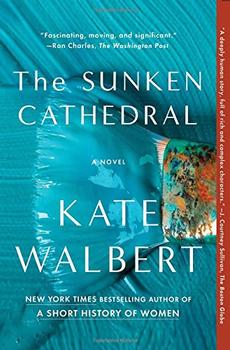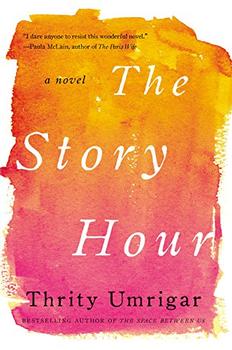Summary | Excerpt | Reviews | Beyond the book | Read-Alikes | Genres & Themes | Author Bio

Anna Baran knows: The teenage years are rough enough. Now imagine throwing a good dose of cultural displacement into the mix and giving the whole thing a whirl. It's enough to make any sane girl become unmoored. Circumstances might have taken Anna away from her beloved Polska, but nothing can keep her from visiting her homeland every summer. And it is here in Poland, specifically in the city of Kielce where her family is from, that Anna forms two lasting friendships, with Justyna Strawicz and Kamila Marchewski-Ludek, that take her through much of her teenage and young adult years.
Anna's father once had ties to Poland's Solidarity movement so fear of retribution from the communist government keeps both him and Anna's mom from traveling to their native country, and they seek asylum in the United States. This is where Anna is raised, but after an initial visit to Poland, on the cusp of becoming a teenager, she knows she doesn't belong anywhere else. She might suffer the school year back in New York but it is Kielce, in the presence of an extended family and, of course, her friends, that she truly finds home. "The summers can't arrive fast enough," Dominczyk writes, "The rest of the year, Anna writes letters, sends care packages and makes frequent trips to Brooklyn's Polish neighborhood, Greenpoint, just to fill up on whiffs of kielbasa at butcher shops."
As they grow up together, Anna and her friends are consumed by run-of-the-mill teenage concerns - school, looks, boys. They fall in and out of love with local boys and dream of a future that might take them beyond what they perceive as their boring vanilla everyday lives.
But as the friends grow up and inevitably move on, the disillusionment of straddling diametrically opposing worlds begins to take its toll on Anna. What once was immensely charming now looks jaded. "The very same guys she'd been buddies with for all those years now made her cringe when she hurried past them, feeling all kinds of sadness. Anna began to notice things this year that threatened to collapse her idea of Polska," writes Dominczyk. "Everyone seemed dismal, hurried and hungover. Had Anna always been this blind? She felt utterly alien, as if Kielce was a place she no longer understood." So it seems like a natural choice for Anna to make a go at life in America. She becomes an actress and is engaged to be married to Ben, a young man from Nebraska who finds her endlessly exotic and intriguing. Kamila, for her part, has moved with her family to Michigan, and is trying to make a life there. Justyna, weighed down by motherhood and all its associated concerns, is the only one left back in Poland.
This coming-of-age story moves between two time periods - one where the girls are teenagers around the year 1989, and the "present," the year 2002, where the young adults are now making their way in the world. As The Lullaby of Polish Girls opens, we find a grown Anna just learning that her friend, Justyna, has lost her husband in a rather violent fashion. The news is relayed to Kamila in Michigan as well. Will this shocking event galvanize the friends into rushing to Justyna's side, essentially making for a reunion after many years apart? We learn this, as well as the history of their growing up, as the pages of the novel unfold.
The author Dagmara Dominczyk is herself a native of Poland and a Hollywood actress. Her father too, escaped Poland after being a member of the Solidarity movement. So one wonders how much of this debut is autobiographical. Whether or not it is, Dominczyk is pitch-perfect when it comes to writing about girlhood and its petty preoccupations. And even as this gets wearying for a time, because it feels as if all Justyna can obsess about is boys and sex, this too, feels realistic and well articulated. The small rivalries, the everyday jealousies, the minor triumphs - Dominczyk draws them all with a precise brush. Her astute powers of observation are on fine display here. She is also excellent at portraying an immigrant's sense of displacement - Anna definitely does not fit in America and is also often the outsider, the Amerykanka, in Poland.
Dominczyk's weakness lies in story development. While she is skilled at building characters, the story that binds them together seems overly contrived at times, eventually barreling into a pretty melodramatic conclusion. Nevertheless The Lullaby of Polish Girls is worth reading for its strong sense of place and the light it shines on the bittersweet process of growing up and moving on. At one point in the story, one friend advises the other to stop pining and start living. "Look around you. This isn't 1892. Poland is finally free! And we have options too...But you have to be in the moment!" she says. The answer? "I am in the moment. And this moment sucks." That one sentiment alone is a perfect snapshot of teen angst. It reminds me of the loveable Ferris Bueller who once said, "I'm not European. I don't plan on being European. So who gives a crap if they're socialists? They could be fascist anarchists, it still doesn't change the fact that I don't own a car." In the end, we realize, for teenagers, it's all about the self. As The Lullaby of Polish Girls shows, the act of growing up and moving that lens out a bit to find one's place in the larger world might be a rewarding process but it is often also an unsettling one. And that holds true whether you're growing up in Bueller's Chicago or Anna's Kielce.
![]() This review was originally published in The BookBrowse Review in June 2013, and has been updated for the
March 2014 edition.
Click here to go to this issue.
This review was originally published in The BookBrowse Review in June 2013, and has been updated for the
March 2014 edition.
Click here to go to this issue.

If you liked The Lullaby of Polish Girls, try these:

by Kate Walbert
Published 2016
A deeply moving novel that follows a cast of characters as they negotiate one of Manhattan's swiftly changing neighborhoods, extreme weather, and the unease of twenty-first-century life.

by Thrity Umrigar
Published 2015
A profound, heartbreakingly honest novel about friendship, family, secrets, forgiveness, and second chances.
Your guide toexceptional books
BookBrowse seeks out and recommends the best in contemporary fiction and nonfiction—books that not only engage and entertain but also deepen our understanding of ourselves and the world around us.